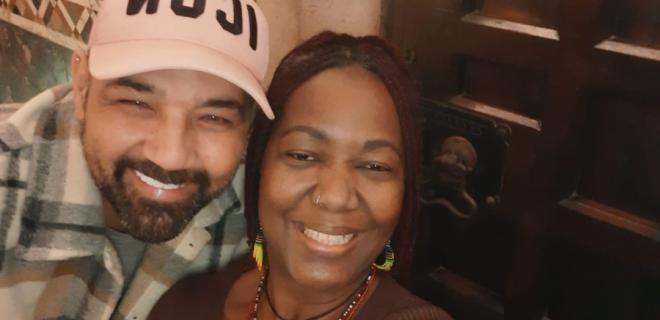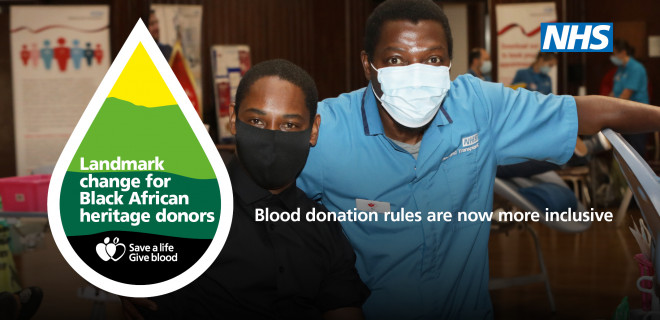Quote textWe are tired of organisations coming in, telling us that we have problems, doing research on us, and then disappearing.
This year’s theme for Black History Month is 'Time for Change: Action Not Words'. It provides an opportunity for us to reflect and consider what actions we are taking and what we need to implement going forward to stand against racism and effectively address health inequalities.
Over the past year, we've been collaborating with African Families in the UK (AFiUK) to raise awareness of HIV and break down the stigma associated with it. Funded by Oxfordshire County Council, the Breaking Barriers project worked with women of African and Caribbean heritage to produce six multilingual videos about HIV testing, how HIV has changed over the years and the impact of stigma.
The aim of Breaking Barriers is to challenge ‘top-down’ approaches to health promotion, which position organisations as the ‘experts’ and the communities they work with as a passive audience. This approach is flawed because it often focuses on HIV prevention through behaviour change - shifting the responsibility for change away from organisations and placing it directly onto individuals.
Nicole Jameelah Shodunke, Founder of Transition Lighthouse and part of the Breaking Barriers project team, shared her frustration with this: ‘We are tired of organisations coming in, telling us that we have problems, doing research on us, and then disappearing.’
See how Breaking Barriers came together
Building trust
Breaking Barriers values lived experience and is rooted in foundations of trust and meaningful participation. Close collaboration between Terrence Higgins Trust and AFiUK was essential to enabling that trust to build; Dianne and Nicole were the bridge that connected Terrence Higgins Trust with the community, and opened a safe space for discussion about sensitive topics.
We hosted focus groups and one-to-one interviews with 23 women of African and Caribbean heritage to identify structural and social barriers that may prevent access to HIV and sexual health services.
The findings from these discussions included a perception that HIV was ‘a thing of the past’ or something that doesn’t affect people in the UK. Other issues discussed included being targeted by ‘problem-focused’ health campaigns, language barriers, trauma relating to lived experience of HIV and AIDS in the 80s and 90s. Distrust in services was also a significant barrier, which was often deriving from colonisation, white saviourism and inequality.
Working in collaboration
Breaking Barriers is centred around meaningful participation. We didn’t want to do research and disappear, which happens all too often. Throughout the project, we worked closely with those who participated in focus groups or interview and hosted regular feedback sessions.
During these sessions, we discussed the key findings from the research, ensuring they were interpreted and relayed accurately and fairly, as well as exploring what the videos would focus on, who would feature in them, and where they would be used.
We agreed we needed videos that acknowledged past lived experiences of HIV and AIDS, showcased the different ways to test, raised awareness of prevention methods such as pre-exposure prophylaxis (PrEP), and challenged HIV-related stigma.

Taiwo Oluwatuyi shares her experience of taking part in Breaking Barriers: 'It was an amazing programme. I thought HIV was something that was in the past, I didn’t know people were still affected by this.
'I really got a lot of value from this project because now we know that HIV has changed. We used to think that when someone had HIV it was the end of their life but now it can be managed with medication.
'I’m very happy to know that and I feel blessed to have been a part of this.'
Quote textAFiUK women are moving from “things happening to us, to things happening through us”.
In March, we hosted two events to showcase the films as part of International Women’s Day. The first was a private event for the contributors to watch the videos together and celebrate their achievement. We were joined on Zoom by Positive Voices speaker, Niamh Millar, who shared her story and thoughts about the project.
The videos were then launched at a public event where we were joined by Oxfordshire residents to celebrate the project. You can view the videos now on our YouTube channel.
They're also available in Arabic, French, Somali, and Swahili to help overcome language barriers.
Jacqui Gitau, Director of AFiUK, shared her thoughts about Breaking Barriers: ‘This project is evidence that African Diaspora women are strong, brave and ready to break barriers that hold us and our community back from achieving good health. AFiUK women are moving from “things happening to us, to things happening through us”.’
It's important that we keep working in a way that prioritises meaningful representation and participation while taking action to address racial inequalities in healthcare.
Thank you to everyone who participated in this project for all of your hard work and commitment. We must make sure we continue this conversation and keep breaking those barriers!
See more on YouTube
Special thanks to the filming and editing crew
Producer/Director: Rachel Cumella
Editor: Lisa Forrest
Additional Camera: Cara Bowen
Production Assistants: Candice Bowers, Louisa Rechenbach
Sound Recordists: Nina Rice, Ellie Williams
Colour Grading, Additional Editing: Romain Kedochim
Reversioning: Denizali Ustundag
Dubbing Mixer: Tom Lowe




